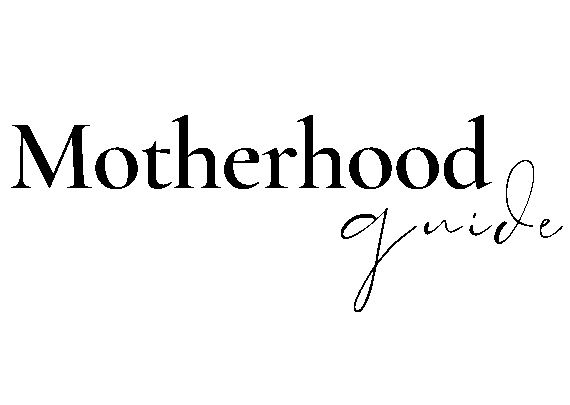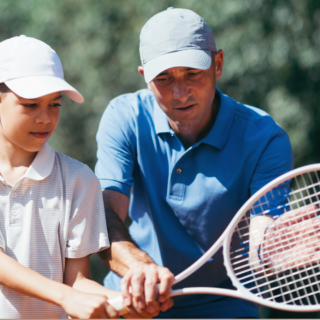Being a parent is supposed to feel natural, right? But what happens if you’ve never experienced that unconditional love yourself and now you must learn to show love to your kids? What if your relationship with your own parents was weak or even damaging? It’s easy to feel uncertain about how to break the cycle of emotional distance, neglect, or even abuse. The truth is, many of us didn’t grow up with the love, care, and nurturing that children need, and yet, we are expected to provide that very thing to the next generation.
If your parents were part of the Baby Boomer generation, they were likely raised in environments where emotional neglect or even physical/emotional abuse was more common than we care to admit. Many Boomers grew up with parents who didn’t learn to show love or affection, or who themselves struggled to survive harsh conditions. They were, in many ways, the product of their environment, just as we are. But that doesn’t mean we are cursed to repeat their patterns.
The Generational Divide: Understanding Where the Lack of Love Comes From
First, it’s important to understand that the emotional distance many Baby Boomers experienced in their childhoods often wasn’t because their parents were intensionally cold or cruel. The reality is, they were raised by parents who came from very different times, often marked by hardship, war, and economic struggle. In many cases, they simply didn’t have time to learn love or affection because they themselves were dealing with their own emotional and physical survival. This created a pattern that got passed down.
According to psychology, generational trauma often occurs when one generation carries the emotional wounds of the previous one. This cycle is difficult to break, especially when we’re unaware of it. If your parents didn’t know how to love or weren’t capable of showing affection, you likely grew up with emotional gaps. These gaps can lead to emotional dysfunction later in life. But acknowledging this is the first step in breaking the cycle. Understanding that your parents may not have had the emotional tools to love you as you needed is key.
Understanding that your parents may not have had the emotional tools to love you as you needed is key
Parents Need to Parent, Not To Be Focused On Their Own Parents
It’s a hard truth: As adults, many of us find ourselves caught in the middle of what I like to call the “reversed-flow.” It’s the dynamic when parents, often aging or struggling with their own emotional issues, demand emotional support, time, and energy from their adult children. While it’s natural to care for our aging parents, it’s important to remember that your primary focus is to your own children.
If you’re constantly focusing onto giving emotional support to your parents, it’s easy to overlook the emotional needs of your children. Kids cannot thrive without parents who can show up, be present, and offer love and stability. Our parents can manage without us, they don’t need us to emotionally “parent” them, so we can show up for our own children, and the next generation can break free from the cycles of neglect, loneliness, or emotional starvation.
Parenting is Mostly Teaching Ourselves to Be Good Parents, No Matter Our Past
The truth is, parenting is something we must teach ourselves, no matter our age or past experiences. Just because you didn’t receive affection or nurturing doesn’t mean you can’t learn to provide it. And on the other hand – just because you considered yourself as a good parent when the kids were small, doesn’t mean your are same good in parenting adult children (and yes, adult children also need your love!). As a mom of a young woman, I think showing unconditional love to a baby, that has no opinion, is way much easier, than showing it to a teenager.
It’s always a good start by becoming aware of your own emotional landscape. Ask yourself: Am I parenting through the lens of my own unresolved emotional gaps? Am I unconsciously following patterns my parents set? Identifying these tendencies is the first step in making a change. With conscious effort, you can choose to build a more supportive and loving environment for your children.
How to Learn to Show Love to Your Inner Child First
One of the toughest challenges many of us face as parents is comparing our children’s lives to our own childhoods. Perhaps your kids have more material wealth, more opportunities, or simply a life that feels cushier than what you experienced growing up. It’s natural to feel guilt or even resentment that they have “more” than you did.
But here’s the thing: the one who’s unhappy is not you today, it might be your inner child that is still looking for validation. That child inside of you might resist the changes you’re trying to make, convincing you that your kids’ lives shouldn’t be “better” than yours. By learning how to show love to your children you can also learn how to show love to yourself: your inner child. More freedom, more love, more trust, these are the gifts you didn’t get, but you can offer to your own children and to yourself.
Fear often holds us back. Fear of doing things differently, fear of making mistakes, fear of not being perfect. But parenting doesn’t require perfection, it requires consistency and love. It’s much better to try and fail than to repeat the same patterns and expect different outcomes.
Parenting doesn’t require perfection, it requires consistency and love
Love is Action, So Start Today
Building a different, healthier relationship with your children is all about understanding where you came from, how you were shaped, and what you need to change in order to make a better future for your kids. It doesn’t matter how old you are or what you’ve been through, healing is possible, and so is becoming the parent you’ve always wanted to have.
Breaking the cycle of emotional neglect or abuse doesn’t guarantee that everything will be perfect. What it does guarantee is that you are giving your children a chance to feel seen, loved, and cared for in ways you may not have experienced. And that, in itself, is a victory.
Parenting is a journey, and for many of us, it’s a chance to learn to show love and to re-parent ourselves. It’s about consciously choosing to break the cycle of emotional pain, creating a space where our children can grow in love, trust, and stability. If you weren’t shown love, it’s okay to feel lost at times. What matters is that you make the choice to learn to show love to your kids, no matter the scars you carry.
Struggling with parenting adult children? Explore my coaching sessions for guidance and support.












